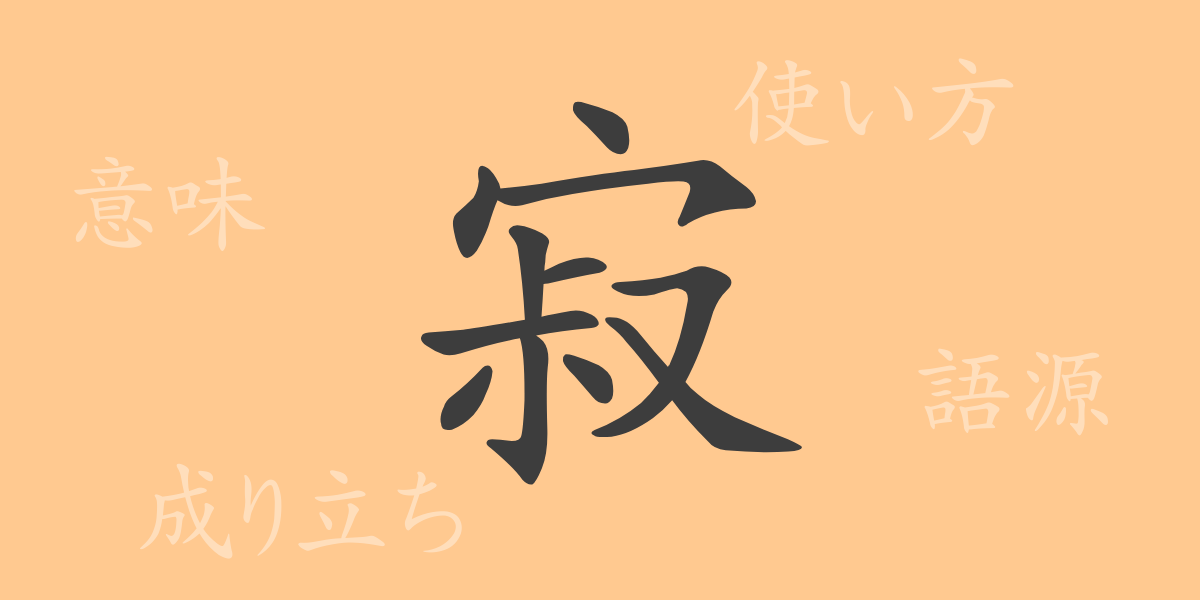The richness of the Japanese language lies in its ability to convey deep meanings and subtle emotions through individual characters. Among them, the kanji “寂(じゃく)” is particularly used to express human emotions and is deeply rooted in Japanese culture and aesthetics. This article delves into the history, meaning, readings, and various idioms and proverbs associated with “寂(じゃく),” uncovering the charm of this character.
Origin of 寂(じゃく) (Etymology)
The kanji “寂(じゃく)” was brought from ancient China and originally depicted a quiet residence after someone had left. The etymology includes “室(しつ)” representing a house or room, and “叔(しゅく)” denoting a quiet state. Combining these elements, “寂(じゃく)” was adopted into Japanese to signify silence and solitude.
Meaning and Usage of 寂(じゃく)
The kanji “寂(じゃく)” conveys meanings such as “quiet and unpopulated” or “feeling lonely.” In Japan, this character frequently appears in poetry and literature to evoke feelings of loneliness and lack. It is also used in Zen Buddhism terminology, such as “寂滅(じゃくめつ),” to denote high spiritual concepts of peace and enlightenment.
Readings, Stroke Count, and Radical of 寂(じゃく)
The kanji “寂(じゃく)” has distinct readings and structural features:
- Readings: On’yomi (音読み) is “ジャク,” and kun’yomi (訓読み) includes “さび,” “さびしい,” and “さびれる.”
- Stroke count: “寂(じゃく)” has a total of 11 strokes.
- Radical: The radical of this kanji is 宀(うかんむり), representing a roof.
Idioms, Phrases, and Proverbs Using 寂(じゃく)
Various idioms, phrases, and proverbs in Japanese incorporate the kanji “寂(じゃく),” reflecting its meanings:
- 寂寞(さびも): Describes a scene that is very quiet and with few people.
- 寂寥(せきりょう): Indicates a lonely and desolate state or feeling deep loneliness in the heart.
- 寂滅(じゃくめつ): A Buddhist term meaning the cessation of worldly desires and the attainment of peace.
- 寂れる(さびれる): Means to become less lively or bustling, often describing a place that has lost its vibrancy.
Conclusion on 寂(じゃく)
The profound meaning carried by a single kanji showcases the richness of Japanese expression. The kanji “寂(じゃく)” not only signifies quietness and loneliness but also captures the delicate emotions associated with these states. Used in literature, poetry, and everyday conversation, this kanji is closely tied to Japanese sensibilities and has wide applications through various idioms and proverbs. Symbolizing serene beauty, “寂(じゃく)” is an essential character for understanding the depth of the Japanese language.

























